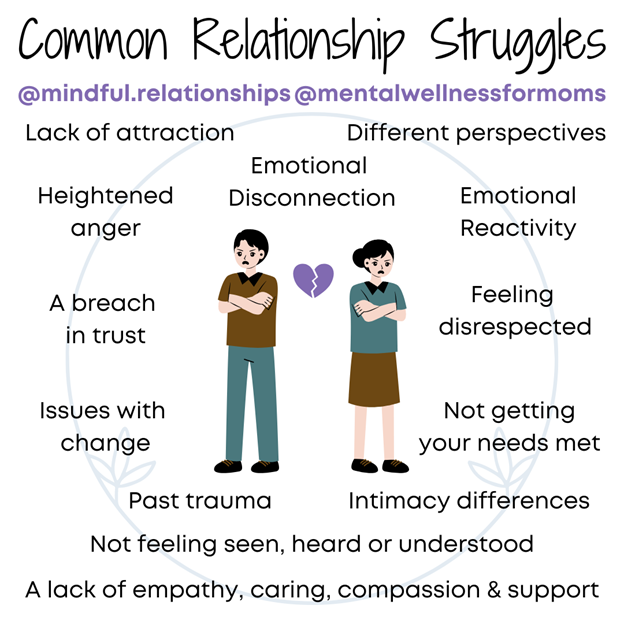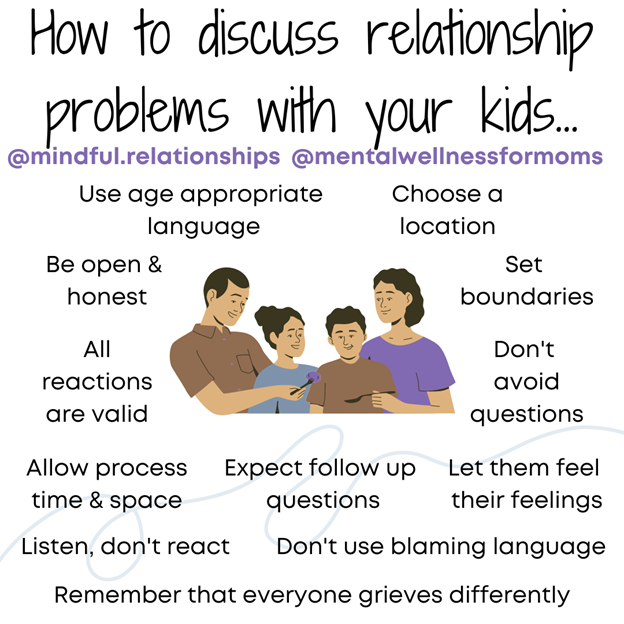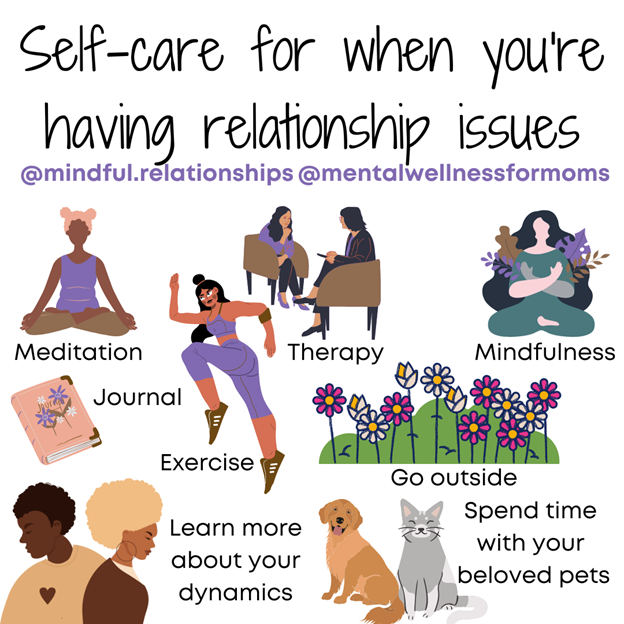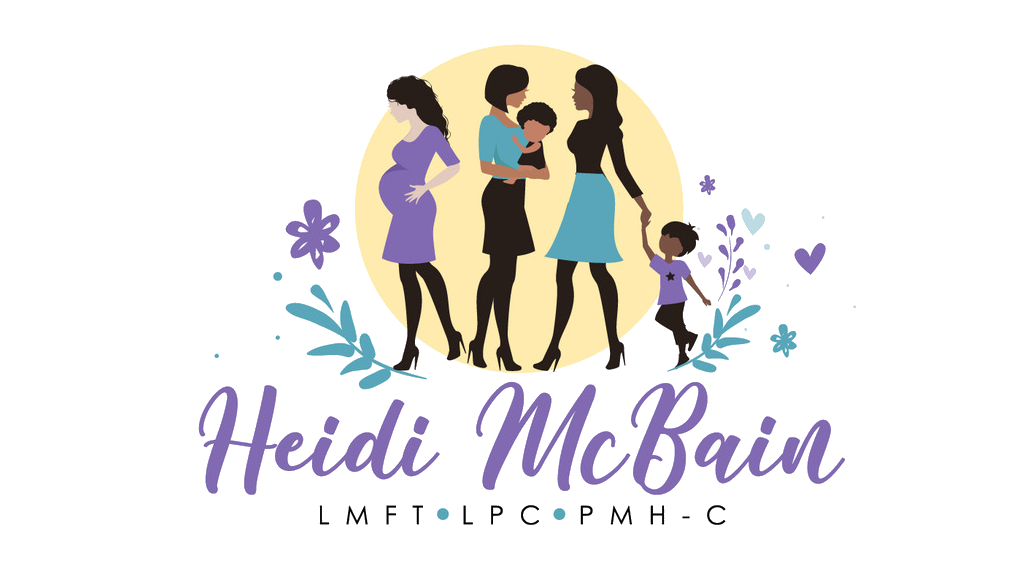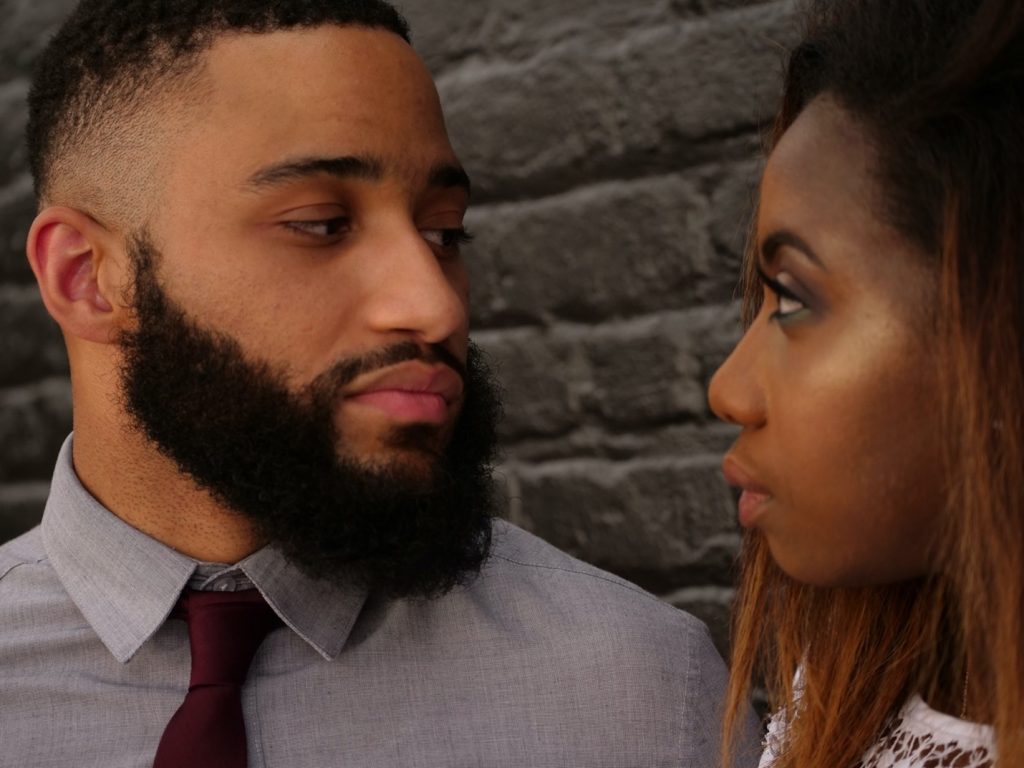
 We are told that people stay in love because of chemistry, or because they remain intrigued with each other, because of many kindnesses, because of luck. But part of it has got to be forgiveness and gratefulness.
We are told that people stay in love because of chemistry, or because they remain intrigued with each other, because of many kindnesses, because of luck. But part of it has got to be forgiveness and gratefulness.
-Ellen Goodman
If you’ve been in a relationship, especially a long-term one, you know firsthand that all relationships have their ups and downs.
If you’re currently having issues in your relationship, it’s an added stress in your life, as well as your partner’s life. But what if you also have kids? Do you share what’s going on in your relationship with them? Do you act like everything is fine? Do you try to find some middle ground? All can be really hard questions to answer, especially in the moment.
Let’s start with some common relationship struggles (both big and small):
- Emotional disconnection
- Heightened anger
- Emotional dysregulation and reactivity
- A breach in trust, including affairs
- Feeling disrespected by your partner
- One person growing and changing, and the other digging in/wanting to keep things the same
- Not getting your needs met in the relationship/your partner not having your best interest at heart
- Not feeling seen, heard or understood by your partner
- A lack of empathy, caring, compassion and support in your relationship
- Lack of physical or emotional attraction
- Trauma from childhood or past relationships
- Different perspectives/approaches (money, sex, parenting, chores, religion/spirituality, extended family)
- Sex – one wants it more, one wants it less, don’t feel safe talking about it
What else would you add to this list?
How to discuss relationship problems with your kids:
- Make the conversation age-appropriate/on their level – learn what age appropriate is
- Be as open and honest as possible, while still setting and maintaining boundaries where necessary to protect your kids (don’t lie)
- Answer their questions/don’t try to avoid them
- Decide if it’s better to talk all together as a family, one-on-one, etc.
- Know everyone reacts differently to hard news
- Give your kids time and space to take in and process what you’ve shared with them
- Expect more questions in the future
- Let them feel their feelings, and let them know that how they are feeling is valid
- Remember that everyone grieves differently
- Decide on a location to talk- at home, out in public, on a walk, in the car, etc. Sometimes the conversation will happen naturally, and other times you’ll need to plan out when it will happen.
- Listen, don’t react. Most of us don’t actually know how to listen. Reflect their experience without add any of your own thoughts, feelings or opinions
- Don’t use blaming language
What else would you add here?
Self-care for when you’re having relationship issues:
- Therapy- individual, couples or family
- Meditation- quiet or guided
- Mindfulness- focus on being present by focusing on your five senses, being where your feet are, being in this moment
- Exercise- move your body daily- go for a walk, do some yoga poses, go to the gym, stretch, etc.
- Go outside and focus on the beauty all around you
- Journal- to help you process what’s going on in your relationship/ how you’re truly feeling about it all. For privacy, use an app or tear up/shred what you wrote.
- Spend time with a beloved pet who loves you unconditionally
- Learning about your dynamics that are activated and contributing to the struggles
What else would you add that helps you when you’re having relationship struggles?
If you’re currently struggling in your relationship, know that you’re not alone. If you’re currently struggling in your relationship, and also have kids, know that figuring out how, when and where to tell them in an age-appropriate way can be very difficult. We’re sending lots of support, compassion and love your way as your navigate this hard chapter in your relationship.
The following are joint social media posts for a recent collaboration with Laura Carr @mindful.relationships
